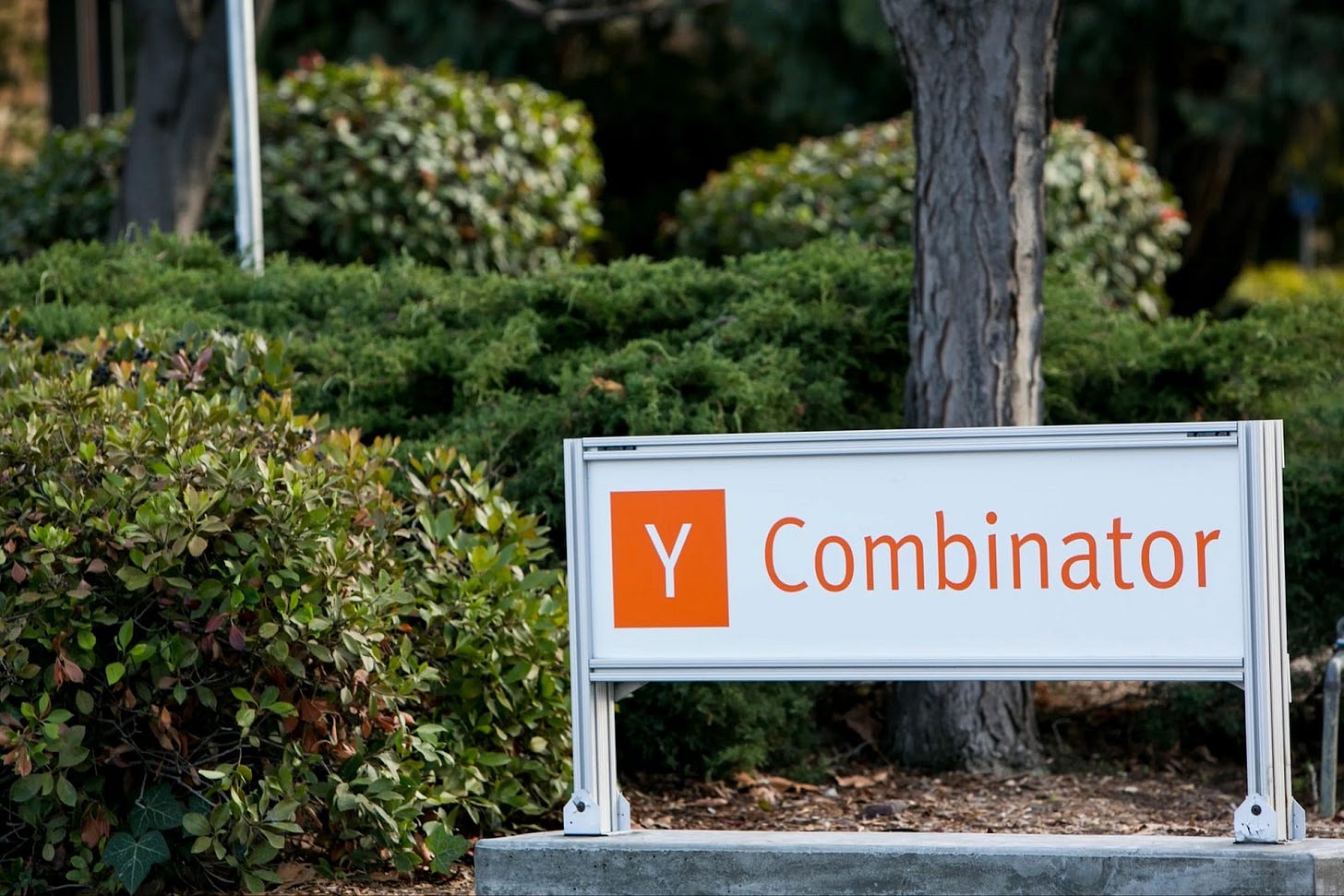Y Combinator Bets on New Space Startups
Explore our overview of 30+ SpaceTech portfolio companies and learn from the experiences of the world's leading accelerator.
Issue 92: Astronauts: 11 531.
Space Ambition co-founder Denis Kalyshkin, with over 10 years of VC experience and an aerospace background, offers paid consultations for SpaceTech startups. If you're planning to raise funding, apply to top accelerators, or seek feedback on your startup idea, please fill out the form here or email us at hello@spaceambition.org. We’re here to help!
Y Combinator, the leading accelerator globally with over 5,000 investments, does not focus exclusively on SpaceTech but includes New Space among the top 20 categories in their current request for startups. As such, we've decided to examine their portfolio more closely. Note that Y Combinator has opened applications for their Winter 2025 batch, with a deadline of October 15, 2024. You can find more details and apply here. Additionally, we recommend reading our articles on 50 accelerators, interviews with SpaceTech VCs, the investment case of Rocket Lab, and Series A deals in 2023 (Market Overview: SpaceTech Deals). These resources will help investors understand SpaceTech investments and guide startup founders on how to appeal to investors and address potential issues.
We identified 31 SpaceTech startups backed by Y Combinator. The first investment occurred in 2015, with 2024 being notably active, featuring 6 startups. In 2023, they supported only 2 startups, and in 2022, they had 5 deals. 2021 saw a peak with 9 deals. Between 2005 and 2020, only 9 startups participated in the acceleration program. Most portfolio companies are U.S.-based startups with founders from aerospace backgrounds. Well-funded startups often have second-time entrepreneurs or team members from top companies like SpaceX, Blue Origin, Virgin Orbit, Relativity Space, NASA, and Lockheed Martin. If you don’t fit these criteria, don’t be discouraged. It means you may need to put in extra effort to demonstrate your value. Remember, an accelerator is a tool, not a cure-all. Set clear goals and use the accelerator to achieve them. We wish you success on your journey. Sapere aude!
Top Funded Companies
To begin, it’s useful to examine the top-funded Y Combinator companies as of August 9, 2024. While some of these companies have experienced ups and downs, they remain the startups that investors believed most at some point.
Relativity Space is a startup based in Los Angeles, founded in 2016. The company specializes in building 3D-printed rockets. Notably, Relativity Space was established after one of its competitors, Rocket Lab, secured a $20 million round from Bessemer Venture Partners in October 2014 (read our previous article about the deal here). Relativity Space participated in Y Combinator’s Winter 2016 batch. The founder, Tim Ellis, previously worked as an aerospace engineer at Blue Origin for nearly five years. The company raised $620k from Mark Cuban in March 2016 and $10.1M from Social Capital in July 2016, following Y Combinator's Demo Day. To date, Relativity Space has raised a total of $1.4B.
Momentus is a U.S.-based company founded in 2017 that develops low-thrust propulsion systems. The company was founded by serial space-tech entrepreneur Mikhail Kokorich. Momentus participated in Y Combinator’s Summer 2018 batch. In November 2018, following Demo Day, the company raised an $8.3M round. Momentus went public in August 2021 with a market cap of $1.2B and raised $137M at its IPO. The total investment in Momentus has reached $159M. You can find their current market cap here.
Astranis is a U.S. company founded in 2015 that is working on a low-cost satellite internet constellation. The founder, John Gedmark, previously co-founded the Commercial Spaceflight Federation and served as the Director of Flight Operations at the X Prize Foundation. Astranis participated in Y Combinator’s Winter 2016 batch. They raised a pre-seed round in January 2016 at the beginning of the accelerator program, followed by an undisclosed seed round in June 2016, and a $13.5M Series A in March 2018. The total investment in Astranis has reached $753M.
Stoke Space is a U.S. startup founded in 2019 that is developing a reusable rocket. Both founders previously worked at Blue Origin. The company participated in Y Combinator’s Winter 2021 batch. Stoke Space raised a pre-seed round with an undisclosed amount in September 2020, prior to joining Y Combinator. This was followed by a $9.1M seed round in February 2021, a $65M Series A in December 2021, and a $100M Series B in October 2023. The total investment in Stoke Space has reached $176 million.
Albedo is a U.S. company founded in November 2020 that is building a high-resolution visible and thermal spectrum Earth observation constellation. The team includes professionals with experience at Lockheed Martin and Facebook. Albedo participated in Y Combinator’s Winter 2021 batch. The company raised a pre-seed round with an undisclosed amount in March 2021, following Demo Day. This was followed by a $10M seed round in April 2021, a $48M Series A in September 2022, and a $35M round in January 2024. The total investment in Albedo is $93M.
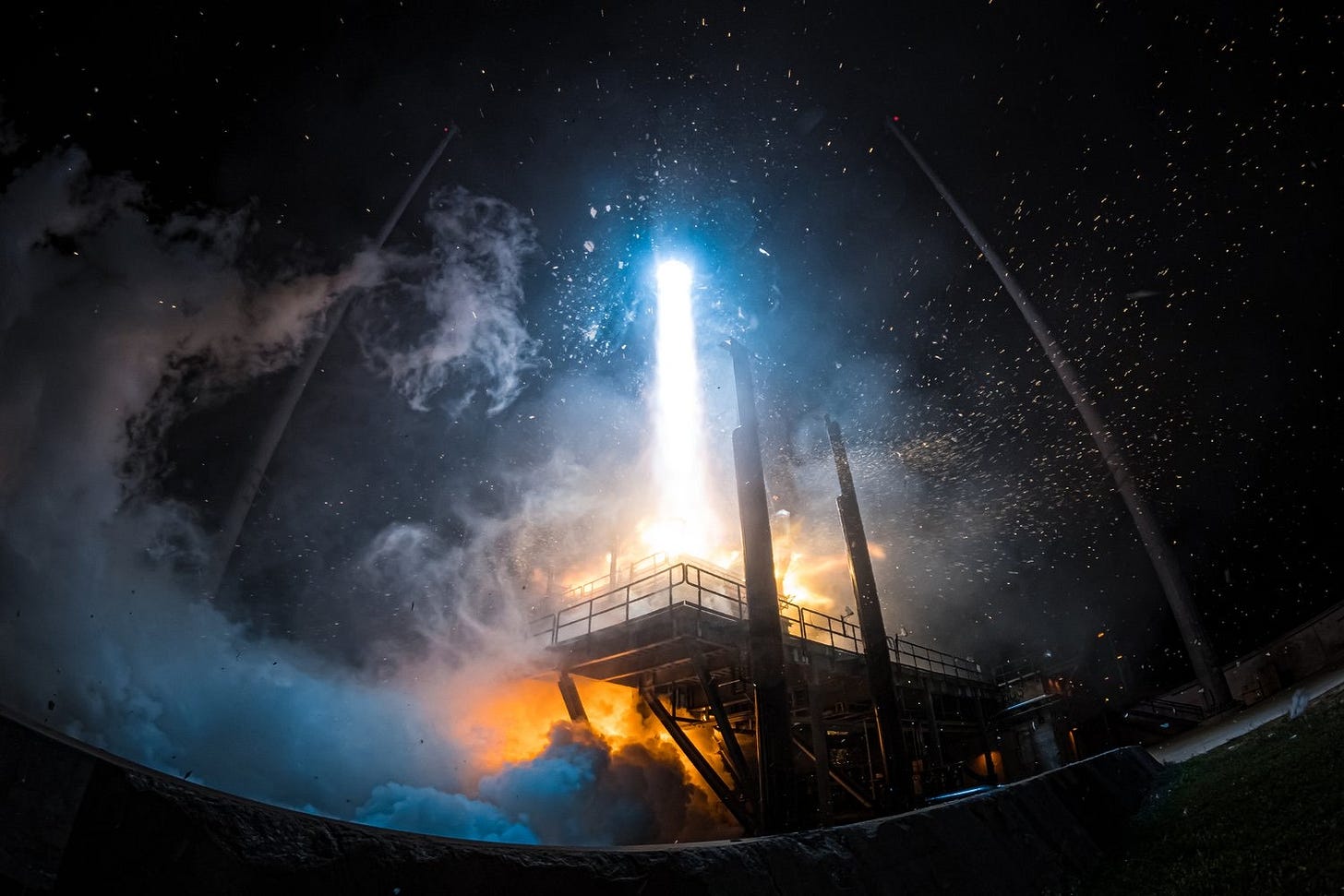
2024
The year 2024 has been particularly notable for SpaceTech startups at Y Combinator, with 4 companies in the current summer batch and 2 in the previous batch. As of this writing, the summer batch is still in progress, with Demo Day scheduled for September. Therefore, it is unclear which of these startups will successfully raise funding. This is not a financial recommendation, but if you are an accredited investor, you might want to explore the SpaceTech companies participating in the current batch listed below.
Lumen Orbit is a U.S. startup founded in 2024 that focuses on building data centers in space. I have to admit, this concept is incredibly exciting! The co-founder and CEO, Philip Johnston, is a former McKinsey consultant and the ex-founder of Opontia, a startup that raised $62M before being acquired. Lumen Orbit raised a $2.4M pre-seed round in March 2024. It will be interesting to follow this startup’s progress in the future.
Sorcerer is a U.S. startup founded in 2024 that builds weather balloons capable of flying 1,000 times longer than conventional ones. The co-founder and CEO, Austin Tindle, is the former Head of Product at SumUp, which raised $4B.
Entangl is a U.S. startup founded in 2024 that develops AI-driven solutions to detect errors in complex engineering projects. Their technology can be applied to various industries, including aerospace. The co-founder and CEO, Shapol M., is a second-time aerospace startup founder, though he has not previously raised funding.
Spaceium Inc. is a U.S. startup founded in 2023 that focuses on building space hubs for refueling and repairing spacecraft. The concept is quite impressive! Both co-founders have extensive backgrounds in aerospace engineering. It will be fascinating to watch this startup’s development in the coming years.
The Winter 2024 batch included 2 two SpaceTech companies. Basalt Tech raised $4M in funding shortly after completing the acceleration program in May 2024, while Elodin secured a $500k round. Both companies focus on software solutions.
Basalt Tech is a San Francisco-based startup developing an operating system for various types of satellites. They address the challenge of unifying the software that runs on these satellites. During the acceleration program, the team consisted of just 2 members. Both founders are relatively young and have backgrounds in aerospace engineering. The startup raised $4M in May 2024.
Elodin is a San Francisco-based startup that develops software for the rapid design, testing, and simulation of drones, satellites, and aerospace control systems. The team is quite experienced in software engineering and design, although only 2 members have direct experience in SpaceTech. The startup raised $500k after the program.
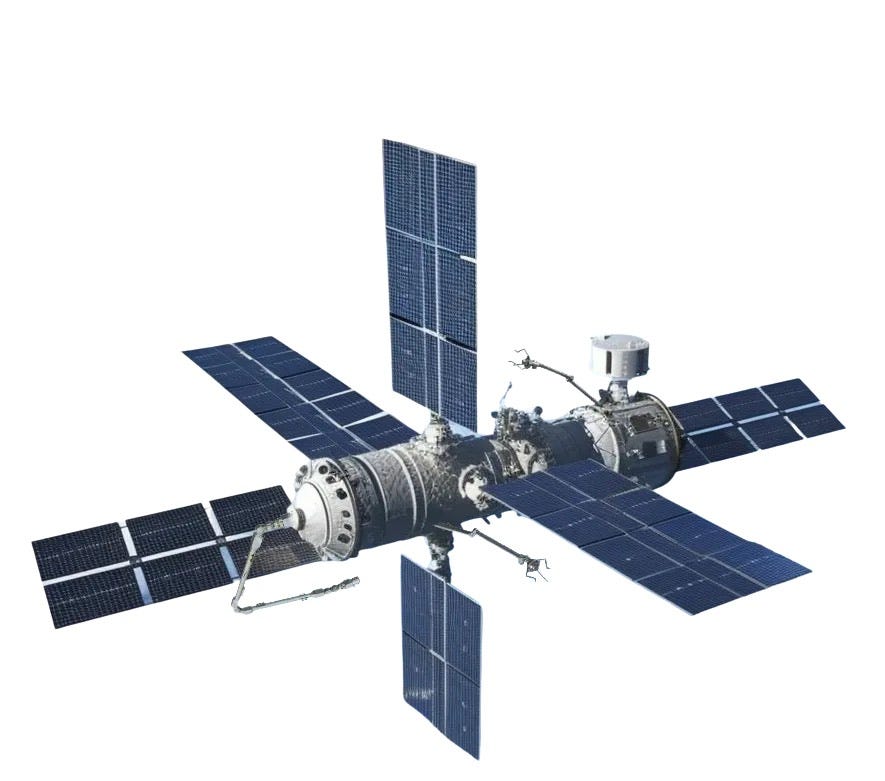
2023
Y Combinator had only 2 SpaceTech startups in 2023. Both participated in the Summer batch (S23) and focused on methane emission monitoring for the oil and gas sector. Each of these startups has raised over $4M.
Orbio Earth is a German startup founded in 2021. They have developed a platform to track methane leakages using proprietary algorithms and freely available satellite images. One co-founder is a second-time entrepreneur, while the other has experience working at NASA. Before joining Y Combinator, they raised $600k in September 2022. After completing the acceleration program, Orbio Earth raised an additional $4M from the European Space Agency, Initialized Capital, and Y Combinator.
HyLight is a French startup founded in 2022. They build unmanned airships that can fly for up to 10 hours at slow speeds to monitor greenhouse gases for the oil and gas industry. The co-founder and CEO, Martin Bocken, is also a second-time founder. In addition to Y Combinator, the startup participated in the Berkeley SkyDeck accelerator. HyLight raised a $4M seed round in April 2024.
2022
Despite the correction in the VC market, 2022 was a fruitful year for Y Combinator SpaceTech startups. 5 companies participated in the program, each raising between $5 million and $20 million afterward. All of these startups focus on various hardware solutions. While it’s still too early to judge the success of each company, it will be interesting to track their progress in 2024-2025.
Hubble Networks is a Seattle-based startup founded in 2021. They are launching a constellation of satellites that provide IoT connectivity for devices using Bluetooth, targeting sectors such as manufacturing, energy, and agriculture. Co-founder Alex Haro previously founded Life360, a public company with a market cap exceeding $2B. After Demo Day, Hubble Networks raised a $500k seed round and later secured a $20M Series A in June 2023 from Seraphim Capital, Type One Ventures, Soma Capital, Space.VC, and others.
AstroForge is a California-based startup founded in 2021 that offers an asteroid mining solution. Unlike competitors, AstroForge plans to break down asteroids, refine the material, and return only the valuable elements to Earth. They launched their first space mission to test this technology in April 2023. Both founders have aerospace engineering experience from Virgin Orbit, SpaceX, and NASA. The company raised a $13M seed round after Demo Day in May 2022, with support from several VCs, including YC alumni-focused Soma Capital and BBQ Capital.
Wyvern is a Canadian startup founded in 2018 that is developing a constellation of hyperspectral satellites capable of providing images at a cost 100 times lower than traditional telescopes. All team members have aerospace engineering backgrounds. Co-founder and CEO Christopher Robson also has experience founding a startup and raising capital in another industry. The startup raised an undisclosed seed round before joining Y Combinator in June 2021. In the first month of the accelerator (January 2022), they raised a $2.3M seed round, likely announcing a round they had closed prior to the program. During the acceleration, they secured a CA$4M government grant and later raised an additional $7M in November 2022.
Quindar is a Denver-based startup founded in 2022 that provides software solutions for satellite constellation owners, enabling them to operate satellites with minimal human intervention. The team consists of former OneWeb engineers. During the acceleration program, they raised an undisclosed pre-seed round and announced a $2.5M round in January 2023. They later secured $6M in January 2024 from Booz Allen Ventures, FundersClub, and FUSE.
Array Labs is a Palo Alto-based startup founded in January 2021. They are building a constellation of satellites equipped with synthetic aperture radars in Low Earth Orbit to create 3D maps of Earth for both commercial and military applications. Co-founder Andrew Peterson has extensive experience in building satellites, while co-founder Isaak Robledo has a background in investment. The company raised $600k in March 2022, prior to joining the accelerator, and secured an additional $5M in October 2022 after the summer batch. Array Labs is backed by Seraphim Capital, Space.VC, and BBQ Capital, a VC firm focused on Y Combinator alumni.
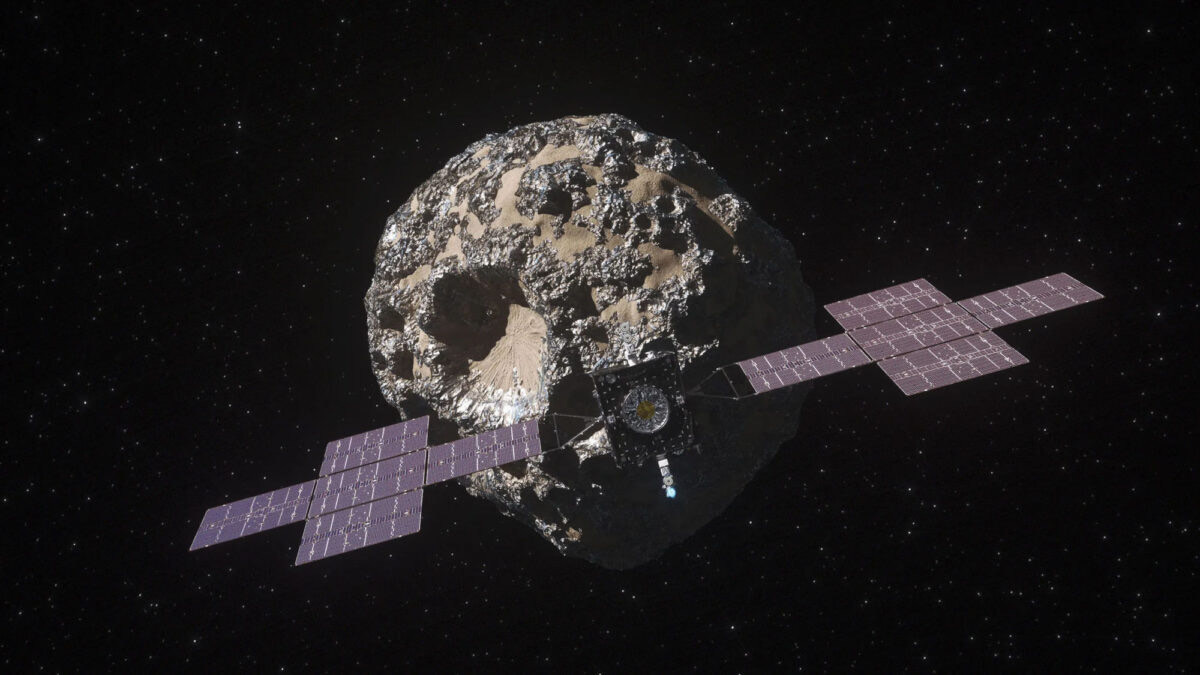
2021
The year 2021 was a hype year for the general VC market, and Y Combinator accelerated a record 9 SpaceTech startups during that time. We’ve already discussed Stoke Space ($176M in investment) and Albedo ($93M) in the previous section. In addition to these, 5 more startups raised between $7M and $18.8M, while 2 others secured more moderate seed rounds.
Epsilon3 is a Los Angeles-based startup founded in 2021. They are developing an operating system for spacecraft. The team includes former employees of SpaceX, Stanford, and Google, with experience in over 100 launches. Co-founder and COO Max Mednik has previously founded several businesses, including Epirus, which has raised over $287M. Epsilon3 raised $1 million before joining Y Combinator, followed by a $2.7M seed round in January 2022 and a $15M Series A in June 2022.
Inversion Space is a Los Angeles-based startup founded in 2021. They are developing autonomous reentry vehicles designed to deliver cargo from space back to Earth. Both founders are Forbes 30 Under 30 honorees with aerospace experience, including one who previously founded a startup and worked at SpaceX, Relativity Space, and GE Aviation. The company raised an undisclosed pre-seed round before joining Y Combinator and secured a $10M seed round in November 2021 after the program.
HEO Robotics is an Australian startup founded in 2016. They specialize in in-orbit visual inspection solutions for government and defense sectors. Both founders have expertise in aerospace and robotics. The company raised A$200k in 2018, an undisclosed seed round in October 2021 after Y Combinator, and a A$12M Series A in August 2023.
Turion Space is a California-based startup founded in 2020. They are developing spacecraft for in-orbit transportation and inspection. The founders have experience working at SpaceX and Lockheed Martin. Turion Space raised a $6.2M seed round in September 2021 after Y Combinator and an additional $1.5M seed extension in March 2022.
TransAstra Corporation is a Los Angeles-based startup founded in 2016. They are working on propulsion systems for various in-space applications, including asteroid mining. Founder Joel Sercel has extensive experience in the aerospace industry, including founding a company and serving as CTO at Momentus. TransAstra raised a $600k pre-seed round in December 2019 before joining Y Combinator, followed by a $2M seed round in July 2021 during the program, and $4M in September 2021 after Demo Day.
Alba Orbital is a UK-based startup founded in 2012. They are building a constellation of pico-satellites for Earth observation with a revisit time of 15 minutes. The company raised a $3.4M seed round in May 2021 after Demo Day.
Care Weather is a U.S. startup founded in 2019. They are developing high-accuracy weather data satellites. Both founders have extensive experience in aerospace engineering. The company raised a seed round with an undisclosed amount.
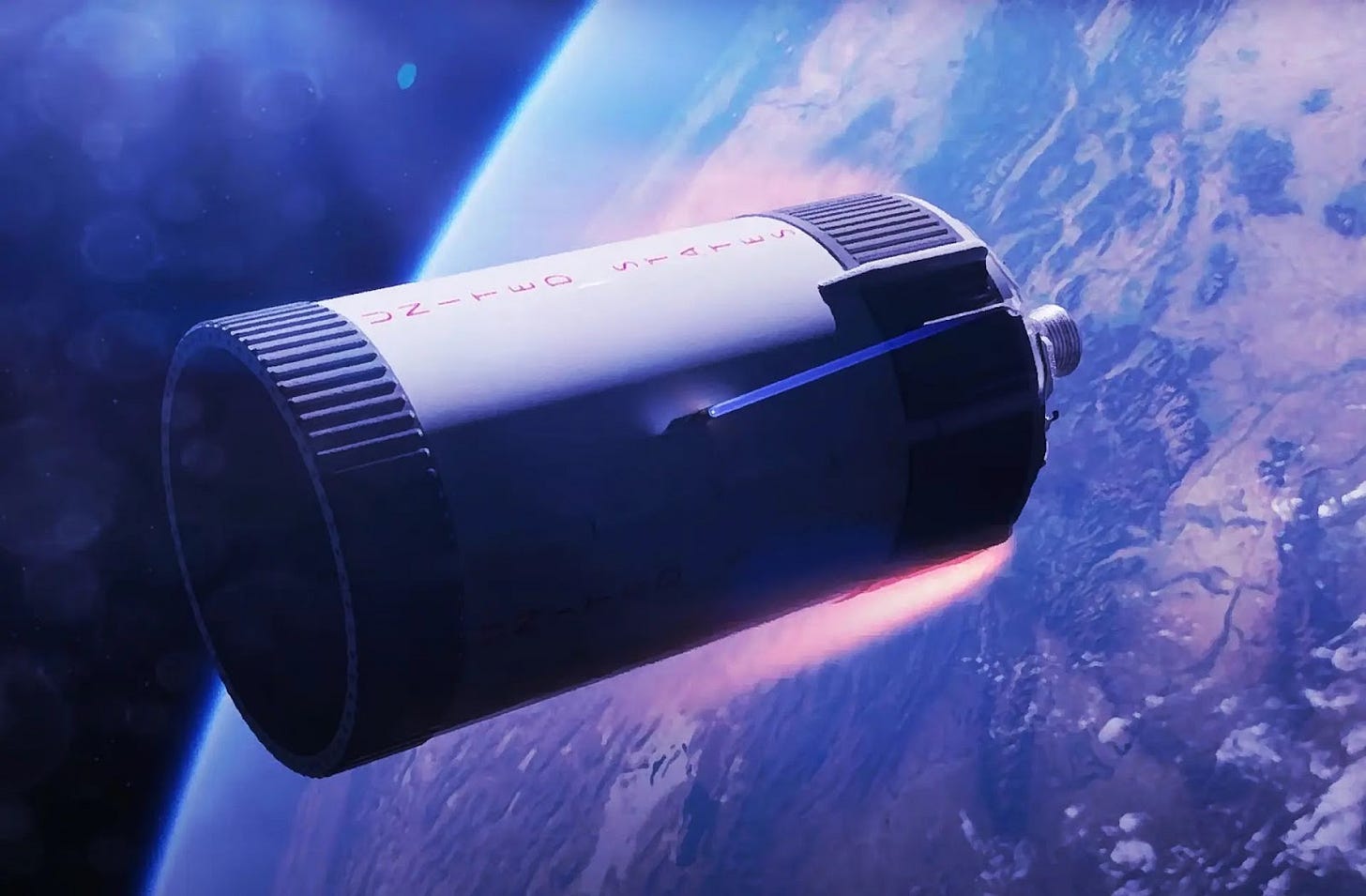
Startups in 2005-2020
We have already discussed Relativity Space (W16, $1.4B raised), Momentus (W18, $159M raised), and Astranis (W16, $753M raised) above. In total, we identified 9 SpaceTech alumni of Y Combinator between 2005 and 2020, with the first SpaceTech company participating only in the winter batch of 2015.
UTVATE is a San Francisco-based startup founded in 2019. They develop telecommunications equipment for satellite internet. The company participated in the winter batch of 2020. Founder Siamak Ebadi has extensive aerospace engineering experience, having worked at companies like SpaceX. UTVATE raised a $572k pre-seed round in December 2019, a $5M seed round in March 2020 (after Demo Day), and an $8M Series A in December 2022.
Other Y Combinator SpaceTech alumni from this period include:
Epic Aerospace: An Argentine startup focused on last-mile delivery for satellites. They participated in the summer batch of 2019 and raised $150k.
SpaceRyde: A Canadian startup specializing in space launch services. They participated in the winter batch of 2019, with the amount raised undisclosed.
Tesseract: A U.S.-based startup working on in-space transportation. They participated in the summer batch of 2017.
Prime Lightworks: A U.S. startup developing electric propulsion systems. They participated in the summer batch of 2016 and raised $120k.
Bagaveev Corporation: A U.S. startup focused on rocket engines. They participated in the winter batch of 2015 and raised $655k.
We hope this overview of Y Combinator's portfolio companies inspires you to launch a SpaceTech startup or invest in one. If you plan to seek investment or apply to top accelerators, we’d be happy to assist. Please fill out the form here or email us at hello@spaceambition.org.




